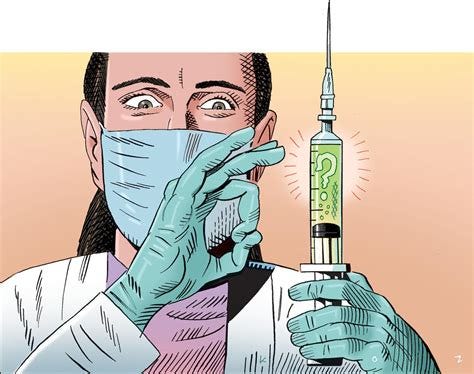The CoVacU18 Study on Pfizer COVID Vaccine Tolerability in Children and Adolescents—Unacceptable High 1.4% 90 Day+ Adverse Event Rate
So why is this garbage still on the market -- for ANYONE? Don't answer that.
The CoVacU18 Study on Pfizer COVID Vaccine Tolerability in Children and Adolescents—Unacceptable High 1.4% 90 Day+ Adverse Event Rate
Staff at TrialSite | Quality Journalism
Mar. 21, 2025, 12:30 p.m.
The lead author of the study is Vivien Grieshaber, affiliated with the CoVacU18 research team in Germany. The study is published in Deutsches Ärzteblatt International (Dtsch Arztebl Int. 2025 May 16: arztebl.m2025.0032) and assesses long-term tolerability of the BNT162b2 (Pfizer-BioNTech) COVID-19 vaccine in individuals under age 18.
Study Summary
This retrospective, cross-sectional study analyzed self-reported vaccine tolerability (SRVT) among 3,228 children and adolescents in Germany who received at least one dose of the BNT162b2 vaccine from October 1, 2021, onward. Data were collected online from parents or guardians, with a median follow-up period of 524 days (approximately 1.4 years). A subgroup analysis compared BNT162b2 with other common vaccines (e.g., influenza). Symptoms were categorized into 11 domains, including local, systemic, and psychological effects.
Findings and Adverse Events
Most common local reactions included pain at the injection site (49.7%) and redness (23%), more frequently reported in older children. Systemic effects included fatigue (20.1%), fever (11.4%), general malaise (8.0%), and headache (6.5%). Compared to non-COVID vaccines, BNT162b2 was associated with more frequent systemic and local symptoms, including gastrointestinal, neurological, dermatological, musculoskeletal, and psychological categories.
Persistent Symptoms and Serious Adverse Events (SAEs):
1.3% (41/3,228) reported symptoms lasting 90 days or more, primarily psychological (15 cases), neurological (9), and dermatological (8) in nature.
45 serious adverse events (SAEs) were reported, equating to a 1.4% incidence rate which is about what TrialSite estimates for vaccine injured in the population.
SAEs were statistically associated with female sex (OR = 4.70, 95% CI: 2.17–10.20) and chronic medication use (OR = 4.06, 95% CI: 1.53–10.79).
Critical Appraisal
The study suggests that BNT162b2 was well tolerated in over 98% of vaccinated children and adolescents. If this were generalizable to an entire fully vaccinated population in America (270 million) that would amount to 5.4 million people, more than double what TrialSite averages now. This is a substantial number. Dr. Peter McCullough, the prominent cardiologist, suggests that 5% or more may have experienced serious adverse events with enduring conditions.
Back to the German study, symptoms were more frequent than those reported for other pediatric vaccines, especially in systemic domains. While serious adverse events were relatively rare, their 1.4% incidence and the presence of long-duration symptoms (≥90 days in 1.3%) highlight a need for continued monitoring. TrialSite suggests this is a high rate of adverse event incidence. Especially when considering risk-benefit calculus for this cohort.
The reliance on self-reported data and potential selection bias (e.g., participation by those with stronger pro- or anti-vaccine experiences) limits generalizability. The authors also acknowledge the potential for underreporting or overrepresentation of side effects based on participant attitude and recall.
Bottom Line
The CoVacU18 study provides one of the longest follow-ups on pediatric BNT162b2 tolerability, showing mostly mild to moderate side effects with what the authors cite as a small but non-negligible rate of prolonged or serious adverse events, warranting careful consideration in ongoing vaccine safety evaluations.
TrialSite would disagree suggesting the number is unacceptably high given the mostly mild nature of COVID-19 at this point, ubiquitous preexisting exposure, the lower risks regardless with children and adolescents, and the higher risk of myo-pericarditis with the adolescent male cohort.
Lead Research/Investigator
Vivien Grieshaber, Christoph Strumann, Sarah Holzwarth, Nicole Toepfner, Wolfgang Carl Gustav von Meissner, Nikos Konstantopoulos, Martina von Poblotzki, Kai O Hensel, Matthias B Moor, Cho-Ming Chao
Source: Dtsch Arztebl Int



